SKATING HER WAY TO A PA THE HUMANS BEHIND THE HEROES








FAMILY PRESCRIPTION








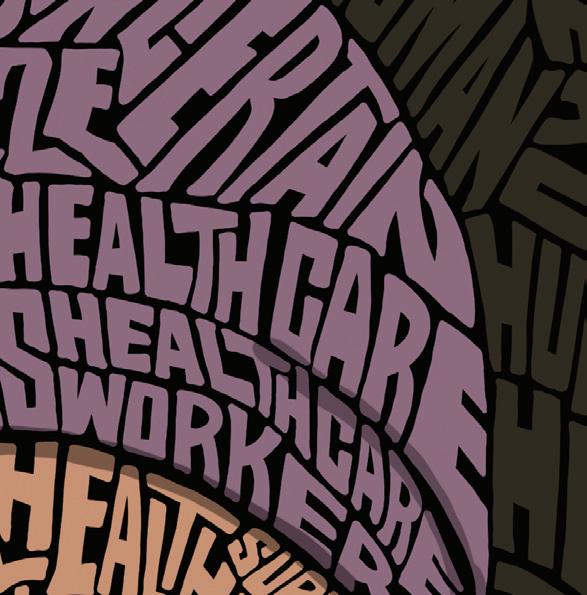







SUMMER 2021 WINTER
presidential distinguished alumni
Cyndy B. Dunlap
DNP, RN, NEA-BC, FACHE

SCHOOL OF NURSING LEADERSHIP IN HEALTHCARE
Cyndy Dunlap, DNP, RN, NEA-BC, FACHE, has dedicated 20 years to health care leadership. Her service includes efforts to improve quality and patient safety endeavors and legislative advocacy for hospitals through the Texas Hospital Association. She also served as president of the Texas Organization of Nurse Leaders and on committees of the American Organization of Nurse Leaders. Additionally, Dunlap established the first HIV/AIDS program for a region of Texas.
Dunlap earned her Doctor of Nursing Practice from the Texas Tech University Health Sciences Center School of Nursing. She also holds a master’s degree in public administration from Texas State University and a bachelor’s degree in nursing from Baylor University.

VOLUME 32 | ISSUE 1
FEATURES
18



The Humans Behind the Heroes
Health care workers have been put to task during the COVID-19 pandemic. They are trying to save everyone while also trying to protect themselves and their families. Not sleeping. Not eating. Feeling hopeful that the worst is over, just to be crushed by another unexpected wave. Here are their stories, revealing our heroes are also humans.
 By Erin Peterson
By Erin Peterson
26 Family Presciption
Opening a business as the first COVID-19 case enters the U.S. is intimidating. But not pursuing dreams of serving and loving other people like they’re family is even more inconceivable.
By Glenys Young
DEPARTMENTS
5 Scope
The only time escaping the classroom is not only acceptable but also rewarded.
9 Vitals
A new treatment for depression when traditional therapies aren’t working.

31 Rounds
The first TTUHSC medical TV studio proves the university’s innovation from the beginning.
35 Update
Tiffany Torres, MS, knows the trends of illnesses in Lubbock. And, she has the data to prove it.
IN EVERY ISSUE
2 Health Matters
3 Feedback
36 Class Notes
Inside
NEAL HINKLE
Winter 2022
18
ON THE COVER
The mental health of health care workers has been tested amid the pandemic. Although, they’ve earned hero status, they are also human. Illustration by John Mavroudis.
PULSE.TTUHSC.EDU | WINTER 2022 1
Health Matters A Letter from Our President
Innovation

— Will it be a Buzzword or
Building Block?
In a recent survey by Pew Research, experts — governmental policy, technology businesses, think tanks, and academics and technology networks — commented on changes they foresee in the next decade for health care. It comes as no surprise they tasked innovation as the change agent.
At TTUHSC, innovation and collaboration are critical pillars for our vision to transform health care. As such, they are also the driving force of our five-year strategic plan. You can learn more on our website at https://bit.ly/34GnhSJ.
More than 30 years ago, TTUHSC conducted its first telemedicine visit (see “Telemedicine’s Perfect Storm” in Pulse Winter 2021). Through innovation, this practice of distance medicine has evolved into one significantly impacting multiple areas of health care.
The greatest obstacle for telehealth practice, however, was payment for services. COVID changed that. We now have an opportunity to establish TTUHSC as the leading institution in advancing comprehensive telehealth. One of our first steps is to develop FiT labs on all campuses across the enterprise.
Frontiers in Telemedicine (FiT), currently only in Lubbock, sets the standard for telemedicine training across the country. This one-of-a-kind, competency-based training focuses on telehealth treatments’ procedures, technology and business. Students complete academics, hands-on simulated learning and a clinical examination to receive certification credentials.
In addition to this innovative education aspect of telehealth, we’ll also focus on advancing research and implementing telehealth practices. A critical piece to this goal is enhancing the broadband access to rural areas. TTUHSC is committed to working collaboratively with community and government partners for solutions.
The future of health care calls for innovation — not as a buzzword but as a building block. Consider this excellent description shared by Michael O’Bryan in an online edition of “Wired.” “To be truly innovative, you need a combination of critical, conceptual, creative, reflective, and visionary thinking skills combined with behavioral traits such as curiosity, resilience, the ability to collaborate, and the development of both observation and communication skills.”
Lori Rice-Spearman, PhD, (Health Professions ’86) PRESIDENT TEXAS TECH UNIVERSITY HEALTH SCIENCES CENTER

ARTIE
LIMMER
2 WINTER 2022 | PULSE.TTUHSC.EDU
We now have an opportunity to establish TTUHSC as the leading institution in advancing comprehensive telehealth.
EDITOR’S NOTE
The past two years have brought disruption, uncertainty and unease for so many, but none more so than for our health care workers. We call them heroes, but have we forgotten they, too, are human?
In this issue, we are honored to share their stories as our health care heroes reveal their vulnerability and humanity. They openly discuss the fears, frustrations and failures that come as they heroically work to keep us safe and healthy.
Mental health is a conversation that, thankfully, is gaining societal acceptance, and that’s one of the pandemic’s silver linings. We hope the article strengthens and deepens the conversation.
If you are struggling with mental health issues, please know that you are not alone, and help is available. We have shared a list of resources on page 24 in “The Humans Behind the Heroes” article.
The mind and body are not separate. What affects one affects the other.
— Danette Baker EDITOR, PULSE DEAR PULSE,
I would appreciate the digital copy only as I have lived in Tajikistan in Central Asia, providing humanitarian eyecare for over seven years now. I am very grateful to TTUHSC for the opportunity they gave me back in 1984 to attend medical school. They saw something in my application that other schools did not see. Today, I am part of an ophthalmology practice in the capital city of Dushanbe, and we have been able to introduce intravitreal eye injections and laser eye surgery to this underserved part of the world. Additionally, before the current unrest in Afghanistan, we could do eye training at two different eye centers there. None of these things would have been possible without my medical school and internal medicine training at TTUHSC before my ophthalmology residency.
— Kevin Kummerfeld, MD, (Medicine ‘88) COMPREHENSIVE OPHTHALMOLOGIST, SOLIM MED TAJIKISTAN
EDITOR’S NOTE: to request a digital-only subscription, email pulse@ttuhsc.edu.
DEAR PULSE,
I liked the variety of content in the last issue. It reflected the many accomplishments of our students, faculty and staff. The human interest component is most appealing with a sense of inclusiveness while also capturing the collaboration and innovation we at TTUHSC value. Thank you for your continuation of excellence in sharing the vital facts and events of TTUHSC.
— Kathy Sridaromont, PhD ASSOCIATE PROFESSOR, TTUHSC SCHOOL OF NURSING LUBBOCK, TEXAS
DEAR PULSE,
There were four of us that recently connected to celebrate our 30th year of nursing. Lea Keesee, DNP, RN, and Belinda Gallegos, MSN, RN, teach at TTUHSC School of Nursing. Jennifer Kaska Shahan, MHS, APRN, CRNA, is a nurse practitioner at Parkland in Dallas. I am the director of the Education and Patient Response Center for Paris Regional Medical Center in Paris, Texas. We have been blessed by our nursing careers and would be willing to share what it means to be a TTUHSC nursing graduate.
Volume 32, Issue 1
EDITOR
Danette Baker
MANAGING EDITOR
Kara Bishop
DESIGN
Jim Nissen
CONTRIBUTORS
Susan Marquardt Blystone, Kim Catley, Carolyn Cruz, Elise Gibson, Tina Hay, Mark Hendricks, Neal Hinkle, Kami Hunt, Artie Limmer, John Mavroudis, Sarah Maxwell, Erin Peterson, Glenys Young
ADMINISTRATION
PRESIDENT
Lori Rice-Spearman, PhD (Health Professions ’86)
VICE PRESIDENT OF EXTERNAL RELATIONS
Ashley Hamm
ASSISTANT VICE PRESIDENT OF EXTERNAL RELATIONS
Mattie Been, Amarillo
Jessica Zuniga, Permian Basin
DEVELOPMENT
CHIEF ADVANCEMENT OFFICER
Cyndy Morris
GIFT OFFICERS
Kevin Friemel, Smiley Garcia, Kendalyn Rising, Clifford Wilkes
ALUMNI RELATIONS
MANAGER
Peyton Sifrit
CONTACT US pulse@ttuhsc.edu
TTUHSC External Relations
—
Diane Nation,
MSN, RN, (Nursing ’91) DIRECTOR, PARIS REGIONAL MEDICAL CENTER PARIS, TEXAS
LETTERS TO THE EDITOR Pulse welcomes thoughts and opinions from our readers via email at pulse@ttuhsc.edu.
3601 Fourth Street STOP 6242 Lubbock, TX 79430-6242
Pulse is published twice a year. Content may be reprinted only wior’s permission. Discrimination or harassment based on race, color, religion, sex, national origin, age, disability, genetic information, status as a covered veteran or other legally protected categories, class or characteristics is not tolerated. Pulse is distributed in compliance with the State Depository Law and is available for public use through the Texas State Publications Depository Program. In compliance with HB 423, Pulse is available in electronic format. If you no longer want to receive the printed version, please notify the editor in writing.
THE MAGAZINE OF TEXAS TECH UNIVERSITY HEALTH SCIENCES CENTER THE MAGAZINE OF TEXAS TECH UNIVERSITY HEALTH SCIENCES CENTER THE MAGAZINE OF TEXAS TECH UNIVERSITY HEALTH SCIENCES CENTER
Feedback
PULSE.TTUHSC.EDU | WINTER 2022 3
PROGRAMS OFFERED



Laboratory Sciences & Primary Care
Bachelor of Science in Clinical Laboratory Science
Second Degree Bachelor of Science in Clinical Laboratory Science
Post-Baccalaureate Certificate in Clinical Laboratory Science
Master of Science in Molecular Pathology


Master of Physician Assistant Studies
Rehabilitation Sciences
Master of Athletic Training
Doctor of Occupational Therapy
Post-Professional Doctor of Occupational Therapy
Doctor of Physical Therapy
Doctor of Science in Physical Therapy
Doctor of Philosophy in Rehabilitation Science
Concentration in Communication Sciences Disorders
Concentration in Movement Sciences Disorders
Speech, Language & Hearing Sciences
Doctor of Audiology
Bachelor of Science in Speech, Language, and Hearing Sciences
Second Degree Bachelor of Science in Speech, Language, and Hearing Sciences
Master of Science in Speech-Language Pathology
Healthcare Management & Leadership
Bachelor of Science in Healthcare Management
Master of Science in Healthcare Administration
Graduate Certificate in Health Informatics and Data Analysis


Graduate Certificate in Health Systems Policy and Management

Graduate Certificate in Healthcare Finance and Economics
Graduate Certificate in Health Systems Engineering and Management
Graduate Certificate in Long Term Care Administration
Clinical Counseling & Mental Health
Master of Science in Addiction Counseling
Master of Science in Clinical Mental Health Counseling
Master of Science in Clinical Rehabilitation Counseling
Texas Tech University Health Sciences Center School of Health Professions @ttuhsc_shp TTUHSC_SHP www.ttuhsc.edu/health-professions health.professions@ttuhsc.edu 806-743-3220
future belongs
the
to
QUICK DOSE TTUHSC TOGETHER FACULTY PROFILE FOR THE RECORD


No Escaping This Lesson

When H.W., an 85-year-old nursing home resident, is taken to the emergency department complaining of pain in his chest, shoulder and jaw, a team of 10 TTUHSC students has 45 minutes to develop and execute a care plan. Full transparency: H.W. isn’t real, the facility is actually a simulation lab in the University Center in Lubbock, and the students’ tools include lockboxes, a Rubik’s cube and a Sudoku puzzle.
The “Escape Room Challenge,” an annual event sponsored by the TTUHSC Office of Interprofessional Education, invites students from multiple disciplines to work together in deciphering clues and completing puzzles to help their virtual patients.












Participants earned IPE credit—a graduation requirement for all degrees—and many came away with greater appreciation for the value that each discipline brings to a given situation.





Scope











News Views from TTUHSC




NEAL HINKLE
PULSE.TTUHSC.EDU | WINTER 2022 5
A HALF-CENTURY OF PARTNERSHIP
TTUHSC in Amarillo hosts an internal medicine grand rounds presentation in 1984.

I Heard That!
Snippets voiced around the university
“When I get upset, I take a break and clean my bathrooms. I’m surprised the porcelain in my bathtub is still holding up, but taking a 90-second pause to allow room for the emotions can prevent an emotional reaction that might be harmful.”
-Tanya Fraley, TTUHSC Office of People Development, “Balancing Brain and Heart” webinar.
“When you hear and see the presentations, I hope it is through the eyes of a parent. I hope you think about the devastating effects this would have if your child were caught up in this unimaginably horrific nightmare.”
-Richard Jordan, MD, School of Medicine dean in Amarillo, Laura W. Bush Institute for Women’s Health Sex Trafficking Symposium.
“We have a loss of language but not intelligence.”
-Leslie “Les” Biffle, Stroke Aphasia Recovery Program member, “Here Comes the Sun,” music video.
“Dr. Min Kang has been bringing me up to speed on a large volume of information as it pertains to the Office of Research, so I want to extend my heartfelt thanks to her. She’s shared her cell phone number with me so I will have the opportunity to benefit from her extensive knowledge into the future as well. She’s done an amazing job.”
-Lance McMahon, PhD, newly appointed senior vice president of the Office of Research and Innovation, TTUHSC President’s Advisory Board meeting.
Scope TTUHSC TOGETHER
Scan with your phone camera to watch the STAR Summer Arts Program music video, “Here Comes the Sun.”
PLEXUS 1984
Web + Learn more about TTUHSC in Amarillo as we celebrate 50 years of service to the community.
“The one word that comes to mind when thinking about TTUHSC Amarillo is partnership,” said School of Medicine Regional Dean Richard Jordan, MD. In its 50 years, TTUHSC in Amarillo has collaborated with local universities, brought innovation through SiMCentral and the InfantRisk Center, and cared for the underserved communities. TTUHSC’s dedication to the Northern Panhandle is something to celebrate.”
6 WINTER 2022 | PULSE.TTUHSC.EDU
Medicine and Genetics Collide


 Vijay Tonk, PhD, DABMGG, FACMGG Professor, Department of Pediatrics Director, Prenatal Genetic Laboratory School of Medicine
Vijay Tonk, PhD, DABMGG, FACMGG Professor, Department of Pediatrics Director, Prenatal Genetic Laboratory School of Medicine
Vijay Tonk, PhD, DABMGG, FACMGG, works at the place where medicine and genetics meet, focusing on genetic causes of developmental disorders like Down syndrome, birth defects like hydrocephalus, and cancers like childhood and adult leukemias.


If a child had developmental disabilities or autistic behaviors, you’re the one who does the genetic analyses for those problems, right?
Yes, I receive blood samples from pediatricians when their patient is not meeting developmental milestones, has birth defects of the heart or intestine, or has later intellectual disability with autistic behaviors. My laboratory performs chromosome and DNA testing that will find the cause of the child’s problem, like the extra copy of chromosome 21 (trisomy 21) that causes Down syndrome.
Where does pediatric cancer fit into your work?
I developed a state-of-the art laboratory for pediatric cancer testing, one of only a few labs in the country certified by the national oversight agency of hematologist-oncologists called the Children’s Oncology Group. My testing addresses all types of child and adult cancers with important implications for diagnosis and therapy.
You primarily work with physicians and rarely meet the patients themselves. Is that strange for you?









Many physicians are unfamiliar with our new DNA technology and are uncomfortable explaining it to patients. I am happy to explain these complicated results to people and always tell them: “Why don’t you come visit me? I’m here all the time. Just come.”

Scope FACULTY PROFILE
PULSE.TTUHSC.EDU | WINTER 2022 7 NEAL HINKLE
RESIDENCY PLACEMENT IN THE SCHOOL OF MEDICINE AND JOB PLACEMENT FOR THOSE SEEKING EMPLOYMENT UPON GRADUATION FROM THE SCHOOL OF HEALTH PROFESSIONS IN 2021.






















One-fourth of all health-related degrees awarded in Texas are from TTUHSC.



















Scope FOR THE RECORD
“ The pandemic drove me to pursue a long-time passion for mental health and wellness.”
CARLA HASKINS, STUDENT, SCHOOL OF HEALTH PROFESSIONS CLINICAL MENTAL HEALTH COUNSELING PROGRAM
“The growth in our enrollment and success of our students and graduates is amazing.”
— DARRIN D’AGOSTINO, DO, MHP, MBA PROVOST AND CHIEF ACADEMIC OFFICER
100%
Stat! NEAL HINKLE/KAMI HUNT 8 WINTER 2022 | PULSE.TTUHSC.EDU
SCHOOL OF MEDICINE SCHOOL OF HEALTH PROFESSIONS
SCHOOL OF NURSING
GRADUATE SCHOOL OF BIOMEDICAL SCIENCES
JERRY H. HODGE SCHOOL OF PHARMACY
Vitals
Signs from the Schools
New Treatment for Depression
Patients diagnosed with depression often have difficulty finding relief. Medication and therapy may help, but these treatments may not work for all patients. TTUHSC has introduced an innovative way to address treatment resistant depression through deep transcranial magnetic stimulation (TMS).
Deep TMS therapy consists of 36 total sessions. Most insurance companies now cover the procedure, including Medicare, and patients are able to self-refer for treatment.

Once the patient is seated at the machine, the helmet is positioned according to the grid coordinates of a blue cap that is placed on the patient’s head beforehand. Inside the helmet is the H-Coil, which is a novel patented structure designed to maximize electrical stimulation of deep brain regions by using directed electromagnetic fields to stimulate neurons deep inside the brain.
2
The touch screen monitor aids the provider in targeting deep brain regions. Deep TMS alleviates depression by stimulating neurons in the dorsolateral prefrontal cortex of the brain that may be inactive. Once targeted, magnetic pulses are delivered in intervals — two seconds on, 20 seconds off — for 20 minutes.
Deep TMS machines are located in both Amarillo and Lubbock Texas Tech Physician Psychiatry clinics.
NEAL HINKLE
1
PULSE.TTUHSC.EDU | WINTER 2022 9 Visit https://bit.ly/3EGPupx for more information on TMS.
Executive Decision

Janette Dufour, PhD, gained networking and mentoring opportunities through the Hedwig Van Ameringen Executive Leadership in Academic Medicine (ELAM) program. Designed to expand the pool of qualified women candidates for leadership positions in academia, TTUHSC ELAM alumnae are paying it forward through a leadership course of their own.


EXCELLENT PERIPHERAL ARTERY DISEASE TREATMENT


Peripheral artery disease (PAD) is caused by plaque buildup that narrows and restricts blood flow to the body’s outlying arteries, primarily the legs. The condition causes pain, impaired mobility and, in advanced cases, leads to amputation.

To advance treatment for this potentially life-threatening condition that affects more than 200 million people across the globe, TTUHSC established the School of Medicine Center of Excellence in Peripheral Artery Disease.
WHY ESTABLISH A CENTER FOR PAD?






“Initially, this disease was not thought to be that severe,” said Mohammad “Mac” Ansari, MD, center director. “However, now the new research shows it’s not only severe and debilitating but also deadly. In the long run, the disease turns into
critical limb ischemia (CLI).”
Current data shows patients with CLI — a condition that causes painful ulcers to form on the legs that can become infected and lead to amputation — have a 20% mortality rate and limb loss rate after one year. The mortality rate for those who undergo amputation increases by 48% at one year and 71% at three years.



TEAM EFFORT
Multidisciplinary clinicians will collaborate with the center to provide successful screening, treatment and education related to PAD and CLI.

Various practitioners, including interventional and imaging cardiologists, vascular surgeons, wound care specialists and podiatrists, will collaborate with


medical specialists who study risk factors and co-morbidities. This team will also work with physicians who may encounter hospitalized PAD patients.
IMPACT

Through the center, the team will use newly developed techniques to improve circulation and address chronic health issues related to PAD, said School of Medicine Dean Steven L. Berk, MD. Issues such as diabetes control, cigarette smoking cessation, wound treatment and methods to preserve limbs and avoid amputation.
One innovative technique to address PAD is the DETOUR procedure, featured in the Winter 2021 issue of Pulse. Ansari performed the procedure, a first for TTUHSC and in Texas.
Vitals SCHOOL OF MEDICINE NEAL HINKLE
NEW CENTER ESTABLISHED FOR DEBILITATING VASCULAR CONDITION Web + Learn more about TTUHSC’s ELAM alumnae. 10 WINTER 2022 | PULSE.TTUHSC.EDU
Future of Health Care Delivery


Desperately seeking medical help, a teenager in active, obstructed labor risked her life to walk 19 miles from her village in Liberia to a clinic in Monrovia. Fortunately, Andrea Weitz, MD, MPH, TTUHSC emergency medicine resident, was there in 2018 to successfully deliver the baby girl. The experience brought home to Weitz the urgency and extent of the health care delivery problems facing much of Africa, where isolated villages are cut off by impassable roads.
Weitz looked to the sky for a solution. Drones, unmanned aerial vehicles, might not have helped the laboring girl, but because they can fly above rutted, unpaved roads, they could deliver much-needed medications, vaccines and other supplies to remote villages. In Sierra Leone, for instance, where maternal mortality rates are soaring, drones could deliver blood to women experiencing postpartum hemorrhaging as well as drugs to stop the bleeding.
Weitz is passionate about broadening access to health care, whether in African villages or remote towns in the United States. In West Texas alone, she noted, some 450 rural communities are “pharmacy deserts,” meaning they lack nearby pharmacies. Drones, she reasons, could address the problem.
As a business venture, Weitz founded DronesRx. The startup company proposes to use drones to deliver medications, supplies and telehealth opportunities to communities in northwest Texas, New Mexico and Oklahoma.



DRONES IN HEALTH CARE

Vitals SCHOOL OF MEDICINE PROVIDED BY ZIPLINE
“My big passion is public health and equal access to health care, making it less out of reach for all patients. Drone technology can help achieve that.”
ANDREA WEITZ, MD, MPH TTUHSC EMERGENCY MEDICINE RESIDENT
A Zipline fixed-wing drone takes off from a northern California testing facility.
PULSE.TTUHSC.EDU | WINTER 2022 11
Collaboration with Community Bridges Gap in Mental Health Care



When a patient visits their primary care provider at Texas Tech Physicians of the Permian Basin, they have the opportunity to see mental health clinicians at the same time. These collaborative visits as they’re coined by Stephanie Moses, PhD, has transformed mental health care delivery in the region.








When Moses began working at TTUHSC in 2008, she was the only clinician in the medical school’s Department of Family and Community Medicine. “I needed help, but more importantly, I needed help from providers who would stay in the community,” said Moses, a licensed psychologist and director of behavioral health for TTUHSC at the Permian Basin.
The community wanted this, too, as they understood the mental health provider shortage’s impact and were willing to partner with Moses through funding and resources support.

The Mental Health Fellowship, under Moses’ leadership, began with one fellow in 2020 at the height of the COVID-19 pandemic. There are now two fellows, with plans to double that number in 2022. If a physician encounters a mental health need during a patient visit, they will reach out to the mental health fellows or Moses herself. Through a collaborative visit, they will introduce themselves to the patient, assuage any fears or misconceptions related to mental health care, and schedule followup appointments as needed.
Since September 2021, 50 collaborative visits with the mental health clinicians have been conducted — 10% of these visits were considered to be severe or crisis identified — bridging a gap in the community’s mental health care system.
The fellowship also provides a much-needed service to graduates who need clinical hours for licensure. It’s a vicious cycle to earn a degree, be passed up for jobs due to lack of licensure, yet few organizations will hire for the




clinical hours necessary to obtain the license, Moses added.

Sean Mishra, MS, (Health Professions ’21) desired a career in mental health once his tenure in the military ended. He earned a master’s in clinical mental health counseling to provide services for veterans like himself.



“It’s been an honor to be a fellow in the program,” he added. “The experience and instruction are incredible, and it feels good to be fulfilling a need in the Permian Basin community.”
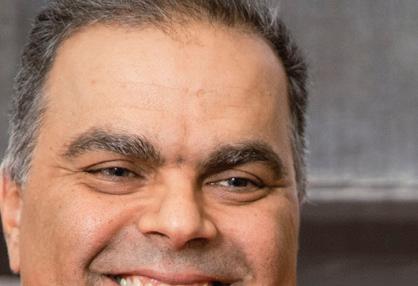
Vitals SCHOOL OF HEALTH PROFESSIONS KAMI HUNT
12 WINTER 2022 | PULSE.TTUHSC.EDU
Sean Mishra, MS, (Health Professions '21) is one of two fellows in the TTUHSC Mental Health Fellowship in the Permian Basin.
Skating Her Way to a PA










During her five seasons with the Haydenettes, an elite, synchronized figure skating team, Devin Pao, MS, PA-C, ATC, (Health Professions ’21) lived the value of teamwork. After all, in 2013 and 2016, her 16-member squad won bronze medals at world competitions for its precise routines. However, she found her professional calling in the “team behind the team” — the medical staff that travels with and supports the skaters. Now, in her first job as a physician assistant, Pao’s new team is Colorado Springs Orthopaedic Group, which also happens to be the headquarters of the U.S. Figure Skating team. “Everything for me is intermingled,” Pao says, “and it’s all because of skating.”



Vitals PROVIDED BY DEVIN PAO, MS,
ATC
PA-C,
My ultimate goal is to join the U.S. Figure Skating and U.S. Olympic and Paralympic Committee medical staff, as they compete in international competitions, and ultimately the Winter Olympics. The timing isn’t right for Beijing, but one day I’ll be there!
— DEVIN PAO, MS, PA-C, ATC, (HEALTH PROFESSIONS ’21) PHYSICIAN ASSISTANT COLORADO SPRINGS ORTHOPAEDIC GROUP
PULSE.TTUHSC.EDU | WINTER 2022 13
Top 10 Trends of the Nursing Profession

































As the largest profession in health care with more than four million registered nurses nationwide, the nursing profession has adapted in innovative ways to address the health care worker shortage and a shift in the health care landscape due in part to COVID-19.
REGISTERED NURSE SPECIALIZATIONS INCREASE













Obtaining state licensure is required for nursing practice, and, while certification is not, the number of certified nurses has increased exponentially over time, according to Tiffani Wise, DNP, CNE, (Nursing ’10, ’08) regional dean for TTUHSC School of Nursing in Dallas, Texas. “Nurses graduate as generalists,” she added. “However, certifications allow you to advance in expertise in specific niches of nursing that make you a more knowledgeable nurse in whatever field you decide to pursue.”
1 2 4 3


























THE NURSE ENTREPRENEUR
In 2013, the Dallas Morning News reported 200 nurse-owned practices and clinics in Texas. Though there is no exact number today, the American Academy of Nurse Entrepreneurs, founded by Veronica Pike, MSN, FN P-C, (Nursing ’12, ’09), now boasts more than 3,500 members, most of whom are in Texas.
NURSE CASE MANAGERS
According to the Centers for Disease Control and Prevention, six in 10 adults have been diagnosed with a chronic disease in the U.S., making nurse case managers vital to the health care industry. Nurse case managers can establish and facilitate long-term health care plans for these patients.

NURSING SHORTAGE, TRIPLED
“I have been a nurse for 48 years; there was a shortage then, and there’s a shortage now,” said School of Nursing Dean Michael Evans, PhD, RN. As the general population increases and ages, nurses are more in demand than ever. According to the Texas Workforce Commission, there are currently 23,000 more unfilled jobs in Texas than registered nurses seeking to fill them. By 2030, Texas is expected to face a nursing labor shortage of more than 71,000.

Vitals SCHOOL OF NURSING
14 WINTER 2022 | PULSE.TTUHSC.EDU
SELF-CARE IS HEALTH CARE
Over the past year, 83% of nurses report a negative impact on their mental health; 75% of nurse leaders report the emotional well-being of their staff as their No. 1 challenge, according to a survey by Vivian Health. 6 8


NURSING ADVOCACY
According to nurse. org, there are 100 national organizations, and 14 in Texas, dedicated to nursing advocacy.



ONLINE EDUCATION





































































































The TTUHSC School of Nursing Doctor of Nursing Practice and Master of Science in Nursing online programs have grown from 46 and 726 enrolled students in the 2016-2017 academic year to 126 and 806 in the 2020-2021 academic year. According to the American Association of Colleges of Nursing’s annual survey in 2020, 445 RN to BSN programs — 64% of polled participants — are now offered fully online.





DOCTORAL EDUCATION ON THE RISE



According to the American Association of Colleges of Nursing, Doctor of Nursing Practice programs have increased from 50 in 2007 to more than 350 in 2019. There are currently 357 DNP programs at nursing schools nationwide and an additional 106 in development. These programs are available in all 50 states plus Washington, DC, with Texas in the top nine states for the most programs.






















TELEHEALTH BUILDS MOMENTUM





























Telehealth practice in the nursing profession originally involved nurses connecting to patients by telephone to ensure access to health care. It has since progressed to clinical evaluations and remote patient monitoring via online technology.




While telehealth visits skyrocketed on a global level during COVID-19 shutdowns, they have now stabilized at a level roughly 38 times higher than pre-COVID, according to a report from CB Insights. This proves telehealth even more important to nurses and the nursing profession overall.




























MOVING OUT OF THE HOSPITAL SETTING
Along with the rise of nurse specialization comes the diversity of practice settings. While the National Nursing Workforce Survey reports that 55.6% of nurses still practice in the hospital, the number is down from 56% in 2013 and 62% in 2008 — reported by the Health Resources and Services Administration. Other nurse practice settings include: correctional facilities, outpatient clinics, schools, home health, entrepreneurship, etc.

Vitals SCHOOL OF NURSING
Scan
to read the full report. PULSE.TTUHSC.EDU | WINTER 2022 15
10 5 7 9
with your phone camera
Gist of Population Health
The One with the 411
New students of the graduate school have many questions when they arrive. Where do I get my groceries? Where should I live? Where are the safe places to walk? The answer is commonly, “Dr. Urbatsch can help you.”
Ina Urbatsch, PhD, is a professor in the Department of Cell Biology and Biochemistry, and a highly funded researcher. But, it’s her love for students that makes this beloved professor the recent recipient of the Dean’s Outstanding Research and Student Mentor award.





She’s counseled troubled students, gone above and beyond to help new students acclimate to Lubbock, Texas — which is a place she never dreamed of living in as she’s originally from Germany — and even works overtime to ensure students have masks that fit properly. “I’ve done extensive research into the best masks for safety and fit, so students should benefit from the work I’ve already put in to the search.”
Urbatsch loves students, and it shows within five minutes of talking to her. “I just want to connect,” she adds. “Students need connection.”
What is population health?
BYRD: It is the study of large populations and takes the view that multiple aspects influence one’s health. For example, a person’s health is influenced by social factors (education/income), biology/genetics, environmental factors (where you live, etc.), and behaviors (exercise, eating, smoking, drinking, etc.).
Is policy development involved?
BYRD: Population health policy is why we have clean drinking water and laws against smoking indoors. We also are looking to address inconsistencies in health care across different people groups and identify policies needed to improve health care access across the board.
Does this discipline bridge a gap in health care?
ST. JOHN: Population health allows clinicians and researchers to improve treatment and care of specific groups through promoting better patient outcomes and lowering costs. For example, there are several studies in progress studying the impact of COVID-19 on patients.
What is the research focus?

ST. JOHN: Population health research focuses on the health outcomes of particular groups. For example, workforce population or college students or shared characteristics, such as breast cancer survivors, football players, ethnicity/race, etc. Researchers look at how determinants interact across these groups.

Vitals GRADUATE SCHOOL OF BIOMEDICAL SCIENCES PROVIDED BY INA URBATSCH, PHD/SARAH MAXWELL/FOLIO ART
Julie St. John, DrPH Associatie Dean Abilene, Texas
Theresa Byrd, DrPH Associate Dean Lubbock, Texas
Two esteemed professors in the Julia Jones Matthews Department of Public Health explain this discipline’s impact on health care.
16 WINTER 2022 | PULSE.TTUHSC.EDU
STORY BY JESSICA M. BERGSBAKEN & JOSEPH A. ZOREK ILLUSTRATION BY GEORGE FOLZ, COPYRIGHT 2020 MCGRAW-HILL EDUCATIONLE

Novel Approach
A new pharmacy comic book, “Interprofessional Practice in Pharmacy: Featuring Illustrated Case Studies,” aims to show high school and college students the diversity of pharmacy careers while helping medical educators realize the crucial role pharmacists provide to a health care team. Author Joseph Zorek, PharmD, BCGP, (Resident ’13) offers 35 pharmacy case studies for your educational entertainment.
DANCE LESSON
Students in the Jerry H. Hodge School of Pharmacy who do an experiential rotation with Brent Dance, PharmD, (Pharmacy ’06) learn firsthand the ins and outs of a small-town independent pharmacy. Dance, pharmacist-incharge at Hereford Pharmacy in Hereford, Texas, has been a preceptor since 2008 and was named the 2021 Amarillo Adjunct Preceptor of the Year. We asked him to define that role and his interest in it.
OPPORTUNITY TO GIVE BACK
Becoming a preceptor was a mutual continuation of his relationship with TTUHSC, Dance said. “I appreciated the preceptors I had, and I always thought that once I got my legs under me, it was something I wanted to do.”
A DISTINCTIVE EXPERIENCE
As an independent pharmacist in a rural town, Dance offers students experiences they might not get at a larger retail chain. He and his staff do pharmaceutical compounding, and their clientele includes not only retail customers but also hospices, nursing homes and correctional facilities.
HANDS-ON FROM DAY ONE
Dance has students take calls from doctors and nurses, answer patients’ questions and administer COVID-19 vaccines, among other responsibilities. “Of course, there’s always a pharmacist standing next to them for support if they need it.” He makes sure the students learn clinical skills and engage in patient counseling and forming relationships with other practitioners. “I
want them to recognize how important a role they play in the patient’s health care.”
TEACH THE BUSINESS
“I own the pharmacy, too, so I try to expose students to the business side. My most recent student just finished her PharmD/MBA, so we studied contracts, dispensing fees and pharmacy financial jargon.”
THE STUDENTS TEACH ME, TOO
Dance appreciates the up-to-date knowledge on new drugs and regulations that students bring. Once a week, he and the student will pick a drug and do a deep dive into its mechanism and side effects; the in-depth exploration, he says, offers professional development for student and preceptor alike.
Vitals
FROM ACCIDENTAL: AN ILLUSTRATED CASE STUDY
JERRY H. HODGE SCHOOL OF PHARMACY
Web + Learn more about Joseph Zorek’s new textbook. PULSE.TTUHSC.EDU | WINTER 2022 17
INDEPENDENT PHARMACY OWNER/OPERATOR PROVIDES HANDS-ON STUDENT EXPERIENCE












 Brittany Simpkins, MSN, RN, (Nursing ’15) a nursing supervisor at the Larry Combest Health and Wellness Center, shares her story on page 25.
Brittany Simpkins, MSN, RN, (Nursing ’15) a nursing supervisor at the Larry Combest Health and Wellness Center, shares her story on page 25.













PULSE.TTUHSC.EDU | WINTER 2022 19
I’m in the middle of the sea with no lifeboat. Even though I know that people are grateful and while many patients say thank you, I still sometimes feel like I’m floating alone.” NURSING
lifeboat. Even I people you, sometimes I’m
BRITTANY SIMPKINS, MSN, RN, (NURSING’ 15)
SUPERVISOR, TTUHSC LARRY COMBEST COMMUNITY HEALTH AND WELLNESS CENTER
The Humans Behind the Heroes
Health care workers have given their all to patients during the pandemic with courageous hearts and strong wills. But behind the mask is a person who is suffering, too.
By ERIN PETERSON Photographers CAROLYN CRUZ AND NEAL HINKLE
Covered in layers upon layers of personal protective equipment, Ebtesam Islam, MD, PhD, FCCP, (Resident ’16, ’13; Medicine ’09; Biomedical Sciences ‘05) spends five hours stabilizing one patient. Sweat drips down her back as she does chest compressions, shouting orders so she can be heard through her mask. Up to six people in the room giving medications, stabilizing the airway, starting intravenous fluids, etc. — it’s stressful, but she remains steadfast in the work. “It’s somebody’s life,” she adds. “And you want so bad to save them.”
As a pulmonary and critical care physician in the medical intensive care unit at University Medical Center in Lubbock, Texas, Islam treats the sickest of the sick. But previous patients have not compared to the challenge of caring for a COVID-19 patient. Every hour of every 12-hour shift, she’s pushed to the very limits of her abilities and stamina.
And it’s taking a toll. “The nurses and I talk about burnout,” Islam acknowledges. “We’ve all gone home and cried. We’ve all cried at work.”
Now, even with an increase in vaccine availability, COVID -19 surges with no clear light at the end of the tunnel. “We’re human,” Islam says, pausing to collect herself. “We take on a little piece of every patient who passes away.”
Mental Health America’s 2020 survey, “The Mental Health of Health Care Workers in COVID-19,” shows more than three quarters of health care workers nationwide reporting exhaustion and burnout — Islam and her colleagues are far from alone.
The need to prioritize mental health care for health care providers was significant long before COVID-19 hit American shores, as burnout was a hot topic among health care professions. However, the pandemic made mental health not only a priority for health care workers, but also a necessity. “The pandemic has
shown that we need each other, more than ever,” said Zach Sneed, PhD, assistant professor in the School of Health Professions Department of Clinical Counseling and Mental Health. “People just really need each other.”
YOU’RE NOT ALONE
The mental distress that health care workers are experiencing can feel particularly disorienting to them, since they often have strong identities as helpers and healers. They pride themselves on being high achievers in both work and life, but COVID-19 has shown them that even they have limits.
“When working with residents and medical students, I’ve found that the struggle is to just be human,” said David Trotter, PhD, associate professor in the School of Medicine and clinical psychologist. “We want to resist that struggle as health care workers, when, really, the struggle is OK. We have resources to treat mental health issues, and it doesn’t make you weak to access them — in fact, if you’re not struggling mentally in the health care industry right now, that’s worrisome.”
Brittany Simpkins, MSN, RN, (Nursing ’15) a nursing supervisor at the Larry Combest Health and Wellness Center, grasps for words to describe the feeling that settles in after the long days. Angry. Upset. Exhausted. None feel adequate. “It’s like getting mad at an iron bar,” she says of her simmering frustration. “If you kick it, you only hurt yourself.”
Before COVID-19, mental health concerns for health care professionals were a significant problem — but it was also something that many felt reluctant to share.
No more. “There has been a sense of universality,” says Logan Winkelman, PhD, LPC, assistant professor in the School of Health Professions Department of Clinical Counseling and Mental Health. “Before, it might have felt like there were just a
20 WINTER 2022 | PULSE.TTUHSC.EDU
handful of individuals feeling exhausted or experiencing anxiety and depression. But when the pandemic hit, nearly everyone felt that way. People felt better just knowing they weren’t alone.”


IS THERE A SOLUTION?
While solutions to the sweeping problem remain elusive, TTUHSC has begun to chip away at the quandary. TTUHSC’s Counseling Center offers options for individual and group therapy via Zoom for frontline and emergency workers and created a website with resources for those in the field. Groups within TTUHSC are also starting to streamline and promote the range of services linked to mental health care. Trotter, along with Sneed and Ron Cook, DO, MBA, professor in the Department of Family and Community Medicine and TTUHSC chief health officer, recently founded the TTUHSC Student and Workforce Wellness Committee, which aims to consolidate campus mental health resources for students, faculty, and staff. “We are champions of normalizing mental health care,” Sneed added. Addressing mental health wellness at the institutional level should start a ripple effect out into health care communities.
While the path to a solution is murky, one thing is clear: empty platitudes that highlight the importance of self-care aren’t going to cut it for health care workers anymore. “Other physicians have repeatedly told me, ‘I don’t want one more



person telling me to ‘take a shower and relax,’ or ‘do 20 minutes of meditation,’” says Sarah Wakefield, MD, associate professor of psychiatry at the School of Medicine. “They want real change on a systemic level.”
WHERE THERE IS CRISIS, THERE IS OPPORTUNITY
Statistics from a survey conducted by the Washington Post show that pandemic-related conditions have led to nearly 30% of the health care workforce reconsidering their profession. However, the vast majority plan to stay despite the challenges — they just want a little relief from the heavy mental burdens they’ve shouldered since the pandemic began. Ben Leeah, MD, CCHP, (Medicine ’00), TTUHSC Managed Care’s northern regional medical director, jokes that he’d stay in the field until there was a “zombie apocalypse” — but he dreams of a day that he can think beyond the next patient on his schedule.
Within the uncertainty of what needs to happen next for health care workers and their mental health, there is determination to solve the problem — whatever it takes. “This has been a terrible crisis, but there is also an opportunity,” Trotter says of this inflection point in health care. “Let’s not let it go to waste.”
Editor’s Note: Do you have ideas on addressing mental health for the health care industry?
PULSE.TTUHSC.EDU | WINTER 2022 21
We’re human. We take on a little piece of every patient who passes away.
with your phone camera to join the conversation.
EBTESAM ISLAM, MD, PHD, FCCP, (RESIDENT ’16, ’13; MEDICINE ’09; BIOMEDICAL SCIENCES ‘05) PULMONARY AND CRITICAL CARE PHYSICIAN UNIVERSITY MEDICAL CENTER
Scan
In Their Own Words
We asked some of our alumni to share their experiences in battling COVID-19 and the impact it has had on their mental health. These are their stories.


I still have nightmares.
The pandemic broke out in the middle of my fellowship.
Things started picking up in May (2020), and by July, it was pure chaos. The time I spent in the ICU tripled. Half of my co-fellows got sick with COVID-19. Because I was chief fellow, I was the one organizing schedules and backup teams.
Everyone was scared. There were nights I would stay up until midnight reading European journals. I was scared of getting sick and bringing the virus home to my family. I was often at the hospital for more than 12 hours a day.
But you just buckle down and do the work.

Normally on my ICU rotation, which lasts for a month, I can go three weeks before the fatigue kicks in. COVID-19 was different. I was exhausted after the first week. It was so intense. I would come home, go to sleep, wake up and do it again.

Usually, before COVID-19, I thrived by compartmentalizing my life. But this past year and a half, I had trouble separating things. I would come home and think about the patients. I would check how they were doing on my computer. I had two patient deaths that were very traumatizing — so fast, so out of the blue. I still, to this day, have nightmares about that. Coping with loss had never been this big of an issue for me before.

In the ICU, you see death every day. But this felt so different. The patients were so, so sick. And, they were completely alone. Half the time it was just me, the nurse and a respiratory therapist in the room as they were dying.

One thing that has kept me sane is exchanging stories and talking about it with others in the health care community. I can say to them, ‘I tried to save this patient’s life for an hour and a half, and they still died,’ and they understand what it’s like. If I kept it bottled up inside, I don’t think I would make it.

It has been disappointing to go from ‘health care hero’ to ‘health care villain’ due to polarization, where so many people are just like, ‘Let me live my life.’ There are people I can’t talk to anymore.
But, through it all, you can’t lose your compassion for other human beings. Life is precious, no matter what.
22 WINTER 2022 | PULSE.TTUHSC.EDU
Ximena Solis, MD, (Medicine ’15) an attending physician at Covenant Medical Center in Lubbock, Texas, was a fellow in pulmonary and critical care medicine during 2020 and much of 2021.
“There is no greater agony than bearing an untold story inside you.” — Maya Angelou
The plexiglass divide.



“Four years ago, I built my idea of how a pharmacy should look and be and do. I can guarantee you that it did not include plexiglass between me and my patients.”








PULSE.TTUHSC.EDU | WINTER 2022 23
Lee Ann Hampton, PharmD, (Pharmacy ’02) is the owner of Paris Apothecary in Paris, Texas.
I will press on in honor of those I’ve lost.
“Early on in the pandemic before the vaccine became available, I lost three colleagues to COVID-19. I woke up several times one night remembering with renewed grief. The next morning, I vowed to myself, ‘I will press on in honor of them.’ ”
Debra Atkisson, MD, DFAPA, ACC, (Medicine ’86) is a child and adolescent psychiatrist and associate professor at TCU and UNTHSC School of Medicine in Fort Worth, Texas.



RESOURCES
If you are struggling with mental health issues, the following resources are available.

CHEMICAL DEPENDENCY
806-725-7145
TEXAS COVID MENTAL HEALTH SUPPORT LINE

833-986-1919
THE COUNSELING CENTER @ TTUHSC
743-1EAP

800-327-0328
www.eap.ttuhsc.edu
STARCARE CRISIS LINE
806-740-1414
800-687-7581
TEXAS MEDICAL ASSOCIATION COMMITTEE ON PHYSICIAN HEALTH AND WELLNESS
800-880-1640

NATIONAL SUICIDE PREVENTION
LIFELINE
800-273-8255 or 988
24 WINTER 2022 | PULSE.TTUHSC.EDU
In
I started here in August 2020 after leaving a job as a traveling nurse six months earlier. In that job, I talked with families about organ donation after they received a declaration of death. It was stressful and emotionally draining. I worked 24-hour shifts. I was spent. So, I left. I had no intention of going into nursing again.
When the world shut down in March 2020, I initially felt so glad that I had gotten out at the right time. But then I felt guilty that I wasn’t helping. I’m a nurse. It’s what I’m made to do.
So, I applied for this job.
A lot of the patients I work with are in survival mode all the time. I can change my mask as much as I need to, but they might find a mask on the ground and use it. People deal with things like COVID-19 differently when they’re worried about finding their next meal.

COVID-19 is like an invisible fire. We’re telling people to stay away from it, but they run into it and then beg us to put it out. We’re pleading with everybody to do basic things.
It hurts your heart when you know you tried everything to give someone the resources and knowledge to stay safe, and somebody sneezes behind them at Walmart, they get COVID-19 and die. That’s somebody’s dad. You saw that person smile behind their mask when you told them a joke. You develop relationships. And then you lose them. It makes me tired.
Sometimes, I feel like I’m in the middle of the sea with no lifeboat. Even though I know that people are grateful and while many patients say thank you, I still sometimes feel like I’m floating alone
Initially, the main emotion I felt was fear: fear of getting sick and dying, fear of a collapse of the whole system. Driving to the units, the roads had so little traffic — everyone was staying home.
When I came home from work, I changed in the garage, swabbed myself down with hand sanitizer and went straight to the laundry room. I put my scrubs in the laundry, then went inside and took a shower. Only then could I greet my family. I knew some providers who temporarily lived in converted RVs to keep their families safe.
It took hours to do everything, and I felt invisible. A lot of us did. While other people were complaining about being locked down, working from home and slow internet speeds, we were driving to that gray unit every day, putting on our PPE and taking care of sick inmates who lost what little comforts they had before all of the restrictions.
Some units had no COVID-19 cases for the longest time, and then an employee would come in with it unknowingly, and it was off to the races. It was a taxing, miserable existence to go in there every day. It was exhausting — you’d have that one-thousand--yard stare.
I remember a moment in June at a meeting when my boss said I sounded desperate. She was right. I was overwhelmed.
I couldn’t think about the future. I felt like I was crawling, and I’d just say to myself, ‘I’m just going to see the next patient. If I can get through the next patient, then I’ll see what happens.”
During work I would get hassled — remember, these guys were locked down in the cells 24 hours a day. We were struggling to get their medications delivered, to get a gallbladder looked at or to get them to the hospital. Just one thing after another.
All you can do is say, ‘ What can I do right now for this patient?”
Ben Leeah, MD, CCHP, (Resident ’03, Medicine ’00) is TTUHSC Managed Care’s northern regional medical director. His coverage area includes 10 prison units in the Texas Panhandle.
Do I think about leaving this job? No. I can’t imagine not doing this. Sure, some of the people I care for say horrible things to me. They can act bonkers. But you still have to take care of them as much as they’ll let you. This is a calling. And no matter how bad it gets, this is what I’m going to do.

PULSE.TTUHSC.EDU | WINTER 2022 25
If I can just get through the next patient.
the middle of the sea with no lifeboat.
Brittany Simpkins, MSN, RN, ( Nursing ’15) is a nursing supervisor at the TTUHSC Larry Combest Health and Wellness Center, a federally qualified health center in Lubbock, Texas, that serves a significant population of underserved patients.
Family Prescription
Lacey Thornhill’s inspiration to open a freestanding pharmacy began with her family. Now it extends to yours.
By GLENYS YOUNG Photographer NEAL HINKLE
26 WINTER 2022 | PULSE.TTUHSC.EDU






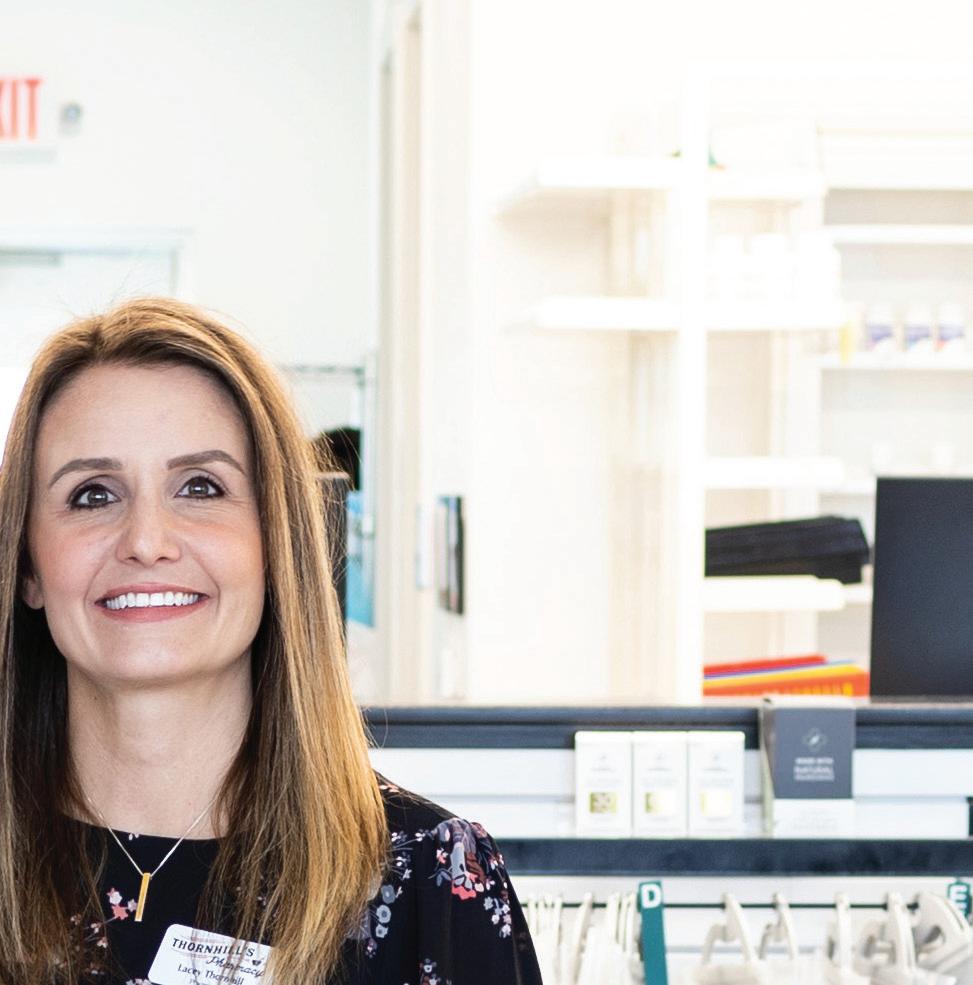










PULSE.TTUHSC.EDU | WINTER 2022 27
Jared Thornhill, PharmD, (Pharmacy ‘10) and Lacey Thornhill, PharmD (Pharmacy ‘10).
acey Thornhill, PharmD, (Pharmacy ’10) still finds it difficult to talk about April 2020.
She and her husband, Jared Thornhill, PharmD, (Pharmacy ’10) had finally embarked upon Lacey’s lifelong dream of opening her own pharmacy. They gave up the security of her job. They gave up the insurance benefits that came with said job for them and their three young daughters. They gave up the comfort that came with those safety nets. They could not afford to fail.
What should have been a time of celebration was punctuated with reality. Two weeks in, Lubbock confirmed its first case of COVID-19, and most of the city shut down. Three weeks later, Lacey’s younger brother – the inspiration behind her dream –died in his sleep of an undiagnosed heart defect.
AN UNLIKELY BEGINNING
Growing up in the 2,300-person Panhandle town of Fritch, Texas, Lacey watched her parents struggle to address her brother’s mental health needs. He suffered from obsessivecompulsive disorder and severe panic attacks.
“He was the rowdy, kind of rambunctious kid that they thought maybe had attention deficit disorder,” Lacey remembers. “Looking back, I think he was possibly slightly autistic but misdiagnosed. My parents tried everything, but 20 and 30 years ago, especially in small towns, there weren’t a lot of options.”
Lacey vowed that one day she would find a way to help families like hers, which led her to pharmacy.
REALIZING A DREAM
Lacey and Jared met in a study group while working toward their doctorates and married following graduation. Unlike his wife, however, pharmacy was somewhat foreign to Jared. Before pharmacy school, he had never stepped foot in one.
“I always knew I wanted to do something in the medical field, but I didn’t know exactly what,” he added. He recognized the abundance of job opportunities for pharmacists and the vital role they play in health care.
“Your pharmacist is, 90% of the time, your first line of defense as a patient,” Jared explains. “They’re the most accessible health care provider there is.”
The first 10 years in their careers, Lacey and Jared worked for Walgreens, where they both completed their initial internship. But Lacey held onto her childhood dream.
Lacey and Jared discussed the possibility many times over the years while starting their family, but the odds weren’t good — the current climate of declined reimbursements, tighter margins and competition from big-box retailers with more resources would be hefty challenges to overcome.
In 2017, they heard the owner of the independent Shallowater Pharmacy had sold his business to CVS. While acknowledging the risks of starting a business – particularly one that would automatically have competition from a large corporation – Lacey and Jared also realized they might never have a better opportunity than to, as they put it, “offer the people of Shallowater the kind of personal service only an independent pharmacy could.”
The more analytical and business-minded of the pair, Jared left Walgreens to start the pharmacy they’d always wanted while Lacey stayed to retain the family’s insurance.
In 18 months, business was stable in Shallowater, so Lacey quit her job at Walgreens. Three days later, she learned she was pregnant with their third daughter.
“It was kind of a surprise,” Lacey laughs, “but we had already decided we were going to also start a Lubbock pharmacy. So, we just wanted to jump in.”
And jump, they did. On March 2, 2020, they opened Thornhill’s Pharmacy near 82nd Street and Milwaukee Avenue.
Then COVID-19 hit.
LOSSES AND LOCKDOWN
Lacey and Jared found themselves on the threshold of a pandemic, operating a new business that few people knew about with three young daughters to care for and no financial safety net.
Surviving as a new business owner amid a pandemic would prove difficult — at least they chose the right industry.
L
“Your pharmacist is, 90% of the time, your first line of defense as a patient. They’re the most accessible health care provider there is.”
28 WINTER 2022 | PULSE.TTUHSC.EDU
JARED THORNHILL, PHARMD (PHARMACY ’10) THORNHILL’S PHARMACY
“The good thing about our business is that people still need medications,” Jared explained. “The elderly population is still going to need the same eight to 10 maintenance medications they took the day before lockdown.”
Unfortunately, COVID-19 prevented them from hosting the large grand-opening ceremony they wanted. The Thornhills hoped to invite health care professionals and the community to introduce them to the concept of an independent pharmacy and explain the differences between independents and chains.
Pharmacists working for larger corporations want to take care of their customers just as much as pharmacists working for small, independent pharmacies, the Thornhills emphasize, but the pressures of working for a larger corporation can sometimes interfere.
COMMITMENT TO SERVICE
Thornhill’s Pharmacy offers several services to save time and simplify life for their customers, including vaccinations, deliveries, coupon cards and a wide variety of flavor mix-ins. With their medication synchronization service, they can schedule a family’s refills to renew on the same day – meaning fewer separate trips to the pharmacy.
As part of their commitment to serving their customers, Lacey, Jared and their employees often find themselves thinking outside of the box to solve more complex problems. Compounding, for instance, offers nearly unlimited options because it allows them to tailor medication to each specific patient.


“We have a lab in-house so we can create and manipulate different types of medications,” Jared said. “Say some medication is only taken by mouth. Well, if a person with diabetes is having nerve pain in their feet, instead of taking something by mouth, we can create a cream or some sort of ointment to put directly on the feet where they have the nerve pain.”
Some of their more impressive ingenuity was in creating a wound dressing for a dog. The animal had a sore on one leg that
wouldn’t heal because the dog kept licking it. Nothing the owner and veterinarian tried was working. But the technicians at Thornhill’s came up with a novel solution: a combination spray and powder that were applied together. The powder contained antibiotics to heal the wound, the spray was bitter so the dog wouldn’t lick it, and when the powder and spray mixed, it hardened into an occlusive dressing.
The pharmacy now offers hormone therapies, unique to each patient, and Lacey hopes to one day even offer pharmacogenomics – the study of how a patient’s unique genetic makeup influence his or her response to medications.
FAMILY BUSINESS
In April 2020, Lacey and Jared didn’t know how they would make it. But nearly two years later, Thornhill’s Pharmacy has gained traction and built relationships with physicians, dentists, hospice companies and the public.

Much of that growth is because of the dedication to helping people that spurred the Thornhills’ dream.
“We get to know our customers on a personal level,” Lacey said. “We take care of the whole family, and we take the time to make sure everything’s correct with their medications. Again, it’s not that the chains don’t do that or don’t want to do that; they just don’t necessarily have the time to spend one-on-one with people to make sure they’re getting the best price or that they’re taking their medications properly.”
With Jared’s business sense and Lacey’s care and compassion for their patients, the Thornhills have built a solid foundation — both for their pharmacy and their family, which, to Lacey, are two inseparable concepts.

In the mothers and fathers looking for answers for their children’s medical issues, Lacey sees her own parents. In the children, she sees herself and her brother, J.T.
And true to her word, she is determined to make life easier for all of them.
PULSE.TTUHSC.EDU | WINTER 2022 29
5 Reasons to Practice IN LUBBOCK, TEXAS

As the hub of West Texas, Lubbock boasts a robust healthcare industry that attracts physicians in all fields from across the country. From our unbeatable opportunities to the unmatched quality of life, here are five reasons to practice in Lubbock, Texas.
HUB OF HEALTHCARE // With a level-1 trauma center that services a 250-mile radius, a Tier One university, and a thriving healthcare industry, the “Hub City” offers the most comprehensive health care services available between Dallas, Phoenix and Oklahoma City. Lubbock’s hospitals and clinics offer state-of-the-art medical technology and services making it possible to receive world-class treatment and care locally.
OPPORTUNITY AWAITS // With multiple clinics, two hospital systems and an affordable business climate for those looking to open their own practice, the “Hub City” is a no-brainer when considering where to practice.
ENVIABLE QUALITY OF LIFE // Lubbock’s unparalleled quality of life is truly enviable. When asked what made Lubbock a premier location to practice, almost all physicians mention the work/life balance. Here, a drive to the clinic is no longer than 15 minutes, as traffic is almost non-existent. This allows for more time with family and enjoying hobbies.
UNMATCHED CULTURE // In West Texas, a culture of hospitality and family envelopes all who cross into our city limits. The pick yourself up by your bootstraps work ethic coupled with the small town feeling and big city resources offers locals what they need to succeed.
STATE-OF-THE-ART HEALTH EDUCATION //Health professionals across the city are given the opportunity to continue their education in Lubbock, Texas. Programs include the Texas Tech University Health Sciences Center, which is consistently ranked in the top 120 medical programs in the country and was recently ranked No. 1 medical school in the nation for the quality and affordability.
As an inviting community for all healthcare professionals, Lubbock is an attractive city to live and work with its ideal work/life blend. For more reasons to practice in Lubbock, Texas, visit lubbockeda.org.
LUBBOCKE D A.ORG #LUBBOCKLEADS
Rounds

Connecting with TTUHSC Alumni


In the Beginning, There Was Innovation



In 1974, the new School of Medicine built a television studio — along with classrooms, clinics and laboratories. “The faculty didn’t want to just be talking heads at the front of the classroom,” said Robert Rees, the school’s first coordinator of television and cinematography and first director of the studio. “Students would watch procedural situations on the television and could check out videos at the library.”


Since inception, TTUHSC’s foundation was built on innovation. “At the time, we didn’t know of any other medical schools enhancing curriculum in this way,” Rees added. “It was very ambitious, and I’m very proud of the work we accomplished in the early years.”

ROTATIONS STUDENT CELEBRATION RESEARCH CORNER HEALTH SCENE
PROVIDED BY ROBERT REES
PULSE.TTUHSC.EDU | WINTER 2022 31
Scan with your phone camera to watch a year in review produced by Robert Rees in 1977.
HEALTH CARE COMES FULL CIRCLE
Cameron Studzinski heard his mom talk for years about the doctor who delivered him. In August, Studzinski met that doctor, Kamlesh Varma, MD, at the white coat ceremony. “My mom still remembers the care she received from Dr. Varma. I’m excited to start my journey in patient care.”

CEREMONIAL NUMBERS
Aspiring audiologists, pharmacists, physicians and physical therapists began their journey into health care by receiving their white coats from TTUHSC in August 2021, a symbol of their future careers.
581
Students received white coats in 2021 from Schools of Heath Professions, Medicine and Jerry H. Hodge School of Pharmacy.

>2K
Students have graduated from the Jerry H. Hodge School of Pharmacy since 2000.
93%
Of graduates in the School of Health Professions Doctor of Audiology program find jobs within one year of graduation.
99%
Of graduates in the School of Health Professions Doctor of Physical Therapy program pass the licensure exam the first time.
51%
Of graduates from the School of Medicine have remained in Texas to complete residency training over the past five years. One-fifth of School of Medicine graduates have remained in a TTUHSC program for residency training.

Rounds STUDENT CELEBRATION NEAL HINKLE
Cameron Studzinski, a first-year medical student, with Kamlesh Varma, MD, the obstetrician who delivered him in 1999.
32 WINTER 2022 | PULSE.TTUHSC.EDU
From Patient to Advocate to Research Scientist




BETH DAUGHERITY SEEKS BETTER OUTCOMES FOR PATIENTS LIKE HER

I HAD TO BE MY OWN ADVOCATE
I was the only person I knew that had shortness of breath as a premenstrual symptom — and it had been happening for 15 years. I was never taken seriously. We were investigating my symptoms, and none of them fit the diagnoses presented to me. In 2015, my lung collapsed nine times. After the second collapse, I had surgery and a biopsy was conducted that the medical team sent to the Mayo Clinic in Scottsdale, Arizona, to one of the premier lymphangioleiomyomatosis (LAM) experts in pathology. It was confirmed I had LAM — a disease caused by abnormal growth of smooth muscle cells that leads to holes or cysts forming in the lungs.


WE’RE PIONEERING NEW SCIENCE
I started my PhD in 2019 and joined the team working for Magdalena Karbowniczek, MD, PhD, at the Jerry H. Hodge School of Pharmacy in Abilene. The best part of being in the program at TTUHSC has been the collaborative spirit.

I have sporadic LAM, so naturally, that’s my curiosity. For my dissertation, I also plan to study different hormonal pathways. We know estrogen is a driving factor, but I suspect that there are other hormones.
IT’S NOT JUST ABOUT MY OWN OUTCOMES
I’m part of a NIH research trial studying LAM, which is incredible.
It is the most empowering thing as a patient to participate in research trials and promote a better life, better understanding or better treatments for those who come after us. As a researcher, I need to promote patient advocacy and tailor treatments in line with their life goals.
WHITE’S PHOTOGRAPHY Rounds RESEARCH CORNER
PULSE.TTUHSC.EDU | WINTER 2022 33
Acts of Service







Rounds Web + Learn more about Logan and Be The Match. HEALTH SCENE 1 3 4
2 5
1 | Peter Grant, MD, (Medicine ‘82) visits his alma mater to speak with students about physical medicine and rehabilitation.
2 | TTUHSC in Amarillo hosts a bone marrow registry drive to benefit children like Logan.
3 | TTUHSC Doctor of Physical Therapy students assist the South Plains Food Bank in cleaning up the organization’s property.
4 | London, a service dog and official employee of TTUHSC, visits students as they prepare for exams.
34 WINTER 2022 | PULSE.TTUHSC.EDU
5 | Logan Winkleman, PhD, LPC, program director in the Department of Clinical Counseling and Mental Health, leads a quilling class for students to relieve stress.
ALUMNI PROFILES CLASS NOTES
FRIENDS WE’LL MISS
DONOR PROFILE

















Update
Catching Up With TTUHSC Alumni & Friends
Tiffany Torres, MS EPIDEMIOLOGIST



City of Lubbock, Lubbock, Texas
Biomedical Sciences Graduate: 2018





Health Professions Graduate: 2014, 2013






DATA DRIVEN

When Tiffany Torres, MS, started studying epidemiology, she had her sights set on foodborne and waterborne illnesses. However, after landing her first job in public health, Torres found salmonella and E. coli too predictable.


“I remember doing foodborne investigations and thinking, ‘This is very dry and clear-cut,’” she said. “It came from that chicken or that potato salad; but respiratory and hospital infections are so broad — they can go in any direction.”


COVID-19 has provided the kind of challenge Torres sought. Seven months into her role as an epidemiologist for the city of Lubbock, she was alerted to a new novel coronavirus identified in China. Almost immediately, her office joined weekly calls with the state health department and met internally to develop a plan should the virus reach Texas.
Now, Torres is responsible for producing daily case counts for the public. Most recently, she has been analyzing raw data comparing last year’s COVID-19 case counts with current data. That data helps assess what populations are most affected and how to target the response. Her graphs and datasets offer a big-picture view of the virus in Lubbock and help the city determine the next steps to keep its residents safe. — Kim
Catley
NEAL HINKLE PULSE.TTUHSC.EDU | WINTER 2022 35
Karl M. Trippe, MD PHYSICIAN/OWNER
Waco Primary Care, Waco, Texas Medicine Graduate: 1996
INDEPENDENT STREAK
As owner and sole physician of Waco Primary Care, Karl M. Trippe, MD, will occasionally ask another physician to cover for him, but otherwise, he says, “I’ve had my phone on for 10 years.” He even answered a call right before walking his daughter down the aisle at her wedding – although, he he did say he’d have to call them back.


Trippe recognizes that the always-on-call lifestyle isn’t for everyone, but he values the autonomy — the ability to take as much time with a patient as he wants, for instance, and to make referrals without in-house corporate pressure.

The result, he says, is a strong personal relationship with his patients. “I don’t think I’ve bought a carton of eggs in I don’t know how long,” he says with a chuckle.
Trippe does hope to add a partner in the next year, with a goal of someone taking over the practice in 15 or 20 years. He would like nothing better, he says, than to identify a like-minded physician to continue the independent path he’s forged. — Tina Hay
GRADUATE SCHOOL OF BIOMEDICAL SCIENCES
Matthew Grisham, PhD, (’82) will retire August 31, 2022, after serving since 2012 as chair of the TTUHSC Department of Immunology and Molecular Microbiology.
JERRY H. HODGE SCHOOL OF PHARMACY
Levi Campbell, PharmD, (’16) was named the 2021 TTUHSC Faculty Preceptor of the Year for the Amarillo campus.
Brent Dance, PharmD, (’06) was named the 2021 TTUHSC Amarillo Adjunct Preceptor of the Year.
Lee Ann Hampton, PharmD, (’02) was named the 2021 Texas Pharmacy Association Texas Pharmacist of the Year.
Mary Klein, PharmD, (’07) received the 2021 Texas Pharmacy Association Distinguished Service Award.
Robert Martinez, second-year student, was one of only 40 Texas pharmacy school students selected for Houston Methodist Hospital’s Power Week, a student observation program.
SCHOOL OF HEALTH PROFESSIONS

Jeramy Davies, MLS, (ASCP)CM, (’11) joined Be the Match as a donor and collection experience specialist in Seattle, Washington.
Jordan Dutton, ATC, (’19) was named a recipient of the 2021 East Coast Hockey League Athletic Trainer of the Year award.
April Hosley, DPT, (’11) was named CEO of Trustpoint Hospital in Lubbock, Texas.
Clark Houser, CLS, (’04) joined SSM Health as administrative director for Rural Health Development, a dual role supporting a network of rural hospitals, and serves as CEO of Okeene Municipal Hospital in Okeene, Oklahoma.
Jared Oluwek, ATC, (’21) joined the Arizona State University sports medicine staff in Tempe, Arizona.
Logan Price, AuD, (’13, ’09) was named a 2021 Odessa Under 40 Honoree by the Young Professionals of Odessa, Texas.
Update NEWS & NOTES PROVIDED BY KARL M. TRIPPE, MD
36 WINTER 2022 | PULSE.TTUHSC.EDU
SCHOOL OF MEDICINE
Corey Anderson, MD, (’94) has been named to the iCRYO Medical Advisory Board.

Meagan Bailey, MD, (’11) joined the New Hanover Regional Medical Center Physician GroupNeurology as a neurologist.
Haley Banks, MD, (Resident ’21, Medicine ’18) joined Stephenville Medical and Surgical Clinic in Stephenville, Texas, as a family medicine physician.
James Cawley, MD, (’83) joined Texas Health Harris Methodist Hospital in Stephenville, Texas, as an OB-GYN.
James Early, MD, (’84) retired June 10, 2021, after 30 years in family medicine private practice.
Michael Gardner, MD, (’85) received the 2021 Clark County Medical Society’s President Award and the 2021 Southern Nevada Healthcare Hero Humanitarian Award.
Jessica Gray, MD, (Resident ’18, Medicine ’15) was named to the 2021 Texas Monthly Magazine’s list of Texas Super Doctors Rising Stars.
Katherine ‘Katie’ Carden, AT
ASSISTANT ATHLETIC TRAINER - FOOTBALL






Texas Tech University, Lubbock, Texas Health Professions Graduate: 2017
BACK IN THE (TTU) GAME
Katie Carden, AT, had two requirements for her graduate program in athletic training: a top notch program and solid football team. TTUHSC, sister university to Texas Tech University (TTU) football team, was one of the few universities with a training program that fit the bill.



Carden discovered her interest in working with football athletes during an athletic training internship as an undergraduate student at the University of Massachusetts. She appreciated the team dynamic among the trainers, as well as the fast pace and variety of injuries among the athletes.

Working with the TTU football team as a graduate student provided further confirmation she was on the right track. The school’s aggressive approach to rehabilitation created a robust environment with athletes involved in preventive exercises, recovering from surgery and everything in between.



Carden recently returned to TTU as an assistant athletic trainer after finishing an internship with the San Francisco 49ers. — Kim Catley


Update NEWS & NOTES NEAL HINKLE
The work of student leaders like Dulce Senclair underscores the need to address mental health during these challenging times, as well as the cricial role psychiatric mental health nurse practitioners play in bridging the gaps to access care.
CINDY WESTON, DNP, APRN, FNP-BC PRESIDENT, TEXAS NURSE PRACTITIONERS
PULSE.TTUHSC.EDU | WINTER 2022 37
Timothy Weigle, PharmD
SENIOR PROGRAM MANAGER, AIR FORCE MEDICAL
MANPOWER AND PERSONNEL
Air Force Medical Readiness Agency, Falls Church, Virginia Pharmacy Graduate: 2010



IN THE TRENCHES AS A MILITARY PHARMACIST
Tim Weigle, PharmD, grasps the irony of anticipating a pharmaceutical career would be a boring choice, given he carried a weapon while prepping medications for critically injured troops at a military base.


“I saw horrible wounds,” he said of his deployment in 2017 to the Craig Joint Theater Hospital at Bagram Airfield in Afghanistan. “It was exhausting working a minimum of 12-hour days, seven days a week.” The assignment was just one of myriad challenging opportunities for Weigle since joining the Air Force after working 10 months with an independent pharmacy.
“I wanted adventure,” he said, “and with the military, there is the opportunity for advancement.” Since graduating, he has achieved the rank of major while completting various assignments in four states. In Marc, he will be promoted to lieutenant colonel. — Susan Marquardt Blystone
Danielle Jones, MD, (’13) a traveling OB-GYN, joined Southland Hospital in Ivercargill, New Zealand.
Winslo Idicula, MD, (’10) was named to the 2021 Texas Monthly Magazine’s list of Texas Super Doctors Rising Stars.
Bradon Loya, MD, (Resident ’21, Medicine ’18) joined Hendrick Medical Clinic in Brownwood, Texas.
Thusha Nathan, MD, (Fellow ’04) joined National Park Medical Center South Central GI and South Central Endoscopy in Hot Springs, Arkansas.
Martin Ortega, MD, FAAFP, (Resident ’14, Medicine ’11) assistant regional dean for TTUHSC at the Permian Basin School of Medicine Department of Medical Education, has been named interim regional chair for the medical school’s Department of Family and Community Medicine in the Permian Basin.
SCHOOL OF NURSING
Carol Boswell, EdD, RN, (’91, ’87) professor in the TTUHSC School of Nursing, has been appointed to the Statewide Health Coordinating Council by Gov. Greg Abbott.
Bonnie Clipper, DNP, RN, FACHE, (’12) has been inducted into the American Academy of Nursing’s 2021 Class of Fellows.
Rhonda Collins, DNP, RN, (’18, ’97) was named the Women in IT Summit and Awards Series Outstanding Contributor of the Year.
Melissa De Los Santos, DNP, MSN, RN, (’11, ’09) earned her doctorate of nursing practice in 2020 from the University of Texas at Tyler.
Valerie Kiper, DNP, RN, (’13) has been named regional dean of the TTUHSC School of Nursing in Amarillo, Texas.
Sally Kipyego, BSN, RN, (’09) qualified for the 2021 Olympic Games and placed 17th in the marathon event.
David Marshall, JD, DNP, RN, (’13) has been named the James R. Klinenberg, MD, and Lynn Klinenberg Linkin Chair in Nursing for Cedars-Sinai in Los Angeles, California.

Inola Mello, DNP, (’11, ’87) has been named director of the TTUHSC School of Nursing BSN to DNP program.
Chris Quiaoit, BSN, RN, (’20) joined Medical City Plano as a critical care nurse in Plano, Texas.
Update NEWS & NOTES PROVIDED BY TIMOTHY WEIGLE, PHARMD
38 WINTER 2022 | PULSE.TTUHSC.EDU
Donna Scott-Tilley, PhD, MSN, (’97, ’91) has been inducted into the American Academy of Nursing’s 2021 Class of Fellows.

Dulce Senclair, DNP, (’21) received the 2021 Texas Nurse Practitioners’ Student Leadership Award.
Amanda Veesart, PhD, RN, (’11) associate professor in the TTUHSC School of Nursing, received the Roberts Endowed Practiceship in Gerontological Nursing and the TTUHSC University Distinguished Faculty award.
Ti ani Wise, DNP, MSN, CNE, (’10, ’08) has been named regional dean of the TTUHSC School of Nursing in Dallas, Texas.
FRIENDS WE’LL MISS
Paul Brooke Jr., PhD, TTUHSC School of Health Professions dean from 1998 to 2012, died Aug. 23, 2012.
Eugene Jean Dabezies, MD, professor emeritus and former chairman of the TTUHSC School of Medicine Department of Orthopaedic Surgery and Rehabilitation, died Nov. 8, 2021.
Shahriar “Cy” Daneshfar, MD, (Medicine ’18) a TTUHSC orthopedics resident, died Oct. 20, 2021.
Teresa Dickens, MD, (Medicine ’87) died Sept. 5, 2021.
Arlen Edgar, with the Abell-Hanger Foundation Inc., died June 15, 2021.
Ari Halldorsson, MD, professor in the TUHSC Department of Surgery, died Dec. 10, 2021.
Charles E. Henry, EdD, one of the founding faculty members of the TTUHSC School of Medicine, died Dec. 29, 2021.
Wendell Mayes Jr., Texas Tech University System regent from 1985 to 1991, died Sept. 12, 2021.
Sidney Paul Phillips, PharmD, (Pharmacy ’01) died July 2, 2021.
Selene Rubio, BSN, RN, A student in the School of Nursing Master of Science in Nursing Informatics Program, died Nov. 11, 2021.
William Rutherford, PharmD, (Pharmacy ’09) died Nov. 5, 2021.
Helen Ann Becknell McCabe-Way, with the H. Jerry McCabe, MD, School of Medicine Scholarship Endowment, died June 1, 2021.
Rhonda Collins, DNP, RN, FAAN CHIEF NURSING OFFICER

Vocera Communications, Georgetown, Texas Nursing Graduate: 2018, 1997
COMMUNICATION THAT FLOWS
You’re a nurse on a hospital COVID unit. You’re shrouded in cumbersome personal protective equipment. Your hands are occupied, but you urgently need to reach the cardiologist on call. You speak into a badge clipped to your collar, and in seconds the badge’s sophisticated software identifies and connects you to the specialist. Rhonda Collins, DNP, RN, FAAN, paints that portrait to explain one use for the technology she’s been representing for the past seven years.
Transitioning from her previous role as a labor and delivery nurse into the private sector was not without challenges, but Collins grew to love engaging with nurses around the world.



In her leadership role at Vocera, Collins brings the needs of nurses directly to the company’s production team to ensure the Vocera device helps resolve communication errors, a leading cause of patient harm. “Our primary goal is to create a seamless communication flow,” she adds, “giving patients a safer passage through the hospital.” — Elise Gibson

Update NEWS & NOTES | FRIENDS WE’LL MISS
PROVIDED BY RHONDA COLLINS, DNP, RN, FAAN
PULSE.TTUHSC.EDU | WINTER 2022 39
Scan with phone camera to make gifts in memory/ honor of friends we’ll miss.
Return on Investment










KEEPING COMMUNITIES HEALTHY GETS A PROFESSIONAL AND PERSONAL COMMITMENT


If quality health care is absent in a community, a healthy workforce is too.
As The United Family’s retired CEO and president and current senior advisor, it’s a concept Robert Taylor fully grasps and champions.












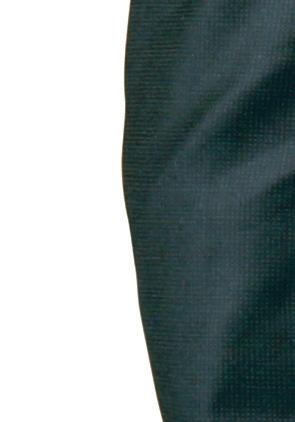


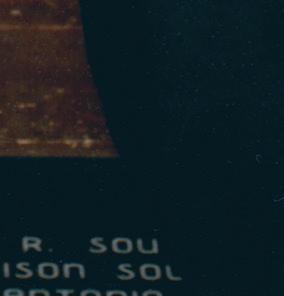



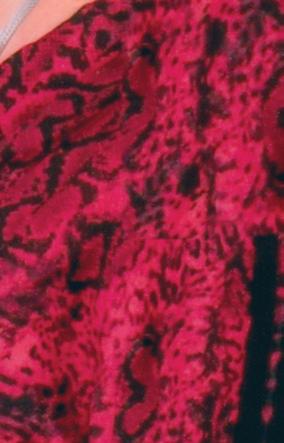
For almost 25 years, The United Family’s gifts have supported scholarships for pharmacy students at TTUHSC, and their generosity has most certainly come full circle. More than 80 TTUHSC graduates currently work in The United Family’s 40 Texas pharmacies. Throughout the pandemic, United Supermarkets pharmacies also have been a valued community partner for TTUHSC in health education and distribution of COVID-19 vaccines. These are just two examples of the company’s many gifts impacting the missions of TTUHSC and Texas Tech University.
“We give where we think it might have the most impact in the areas we serve,” said Taylor. He points to TTUHSC and The United Family’s congruous footprints, serving the western half of Texas across to the DFW Metroplex and into New Mexico.






“You always want the best return on your investment, and we feel like we’ve gotten a huge return both on our personal investments and for United,” said Taylor. He and his wife, Jan, also give personally to the universities. “There’s no doubt that Texas Tech and the (Texas Tech University) Health Sciences Center are universally good – but more importantly, they’re good for this region and the entire state.”

Update DONOR PROFILE Web + Read more about United and the Taylor’s giving story.
40 WINTER 2022 | PULSE.TTUHSC.EDU































new year, new year, www.ttuhsc.edu/vitals in store: Monday-Friday 9am-4pm update your look for 2022 and take 20% off your online purchase with code: pulse20 offer expires march 31, 2022 THE OFFICIAL HOME OF TTUHSC MERCHANDISE www.ttuhsc.edu/vitals TTUHSC University Center Mon-Fri 9am-4pm
Have an entry you would like to see printed in our class notes?
Email: pulse@ttuhsc.edu
Planned Gift Helps Ensure Scholarships for Future Nursing Students

For several years, Bill Tilley (TTU Business Administration ’93) and Donna ScottTilley, PhD, (Nursing ’97, ’91), had discussed including a charitable gift in their estate planning. Their goal was to support scholarships at their alma maters. Someday, the couple thought, we’ll make the gift o cial by completing the paperwork.
The Friday after Thanksgiving 2017, Bill’s heart stopped beating. Within minutes, and with no prior warning, Bill experienced sudden cardiac death. It’s a condition caused by a malfunction of the heart’s electrical system. Without intervention, the survival rate is less than 1%.
Donna’s training through the TTUHSC School of Nursing sent her immediately into nurse mode, performing CPR on her husband until EMS arrived. Bill beat the odds after a few days in the hospital and being fitted with a medical device to correct future arrhythmias.
With a renewed urgency, the Tilleys did what they had always planned to do. Their Gift of Impact names TTUHSC School of Nursing as one of their insurance beneficiaries so nursing students, like Donna, have the opportunity to learn life-saving skills. Their gift also benefits the Texas Tech University School of Music.
Interested in making your GIFT OF IMPACT? Contact Nathan Rice, CFRE, at giftplanning@ttu.edu or 806.742.1781.
Scan to see full story on the TTUHSC IA website

3601 FOURTH STREET | MS 6242 | LUBBOCK, TEXAS 79430 NEW JOB? NEW BABY? NEW AWARD?
www.give2tech.com





























 By Erin Peterson
By Erin Peterson






































































































































































































































































































































 Brittany Simpkins, MSN, RN, (Nursing ’15) a nursing supervisor at the Larry Combest Health and Wellness Center, shares her story on page 25.
Brittany Simpkins, MSN, RN, (Nursing ’15) a nursing supervisor at the Larry Combest Health and Wellness Center, shares her story on page 25.



































































































































































































































